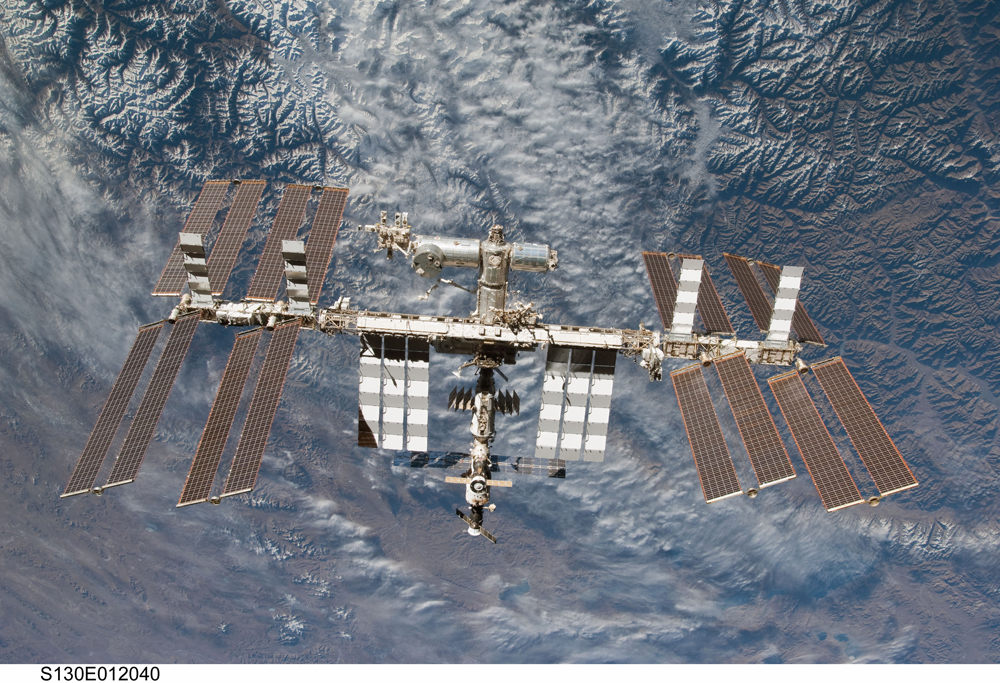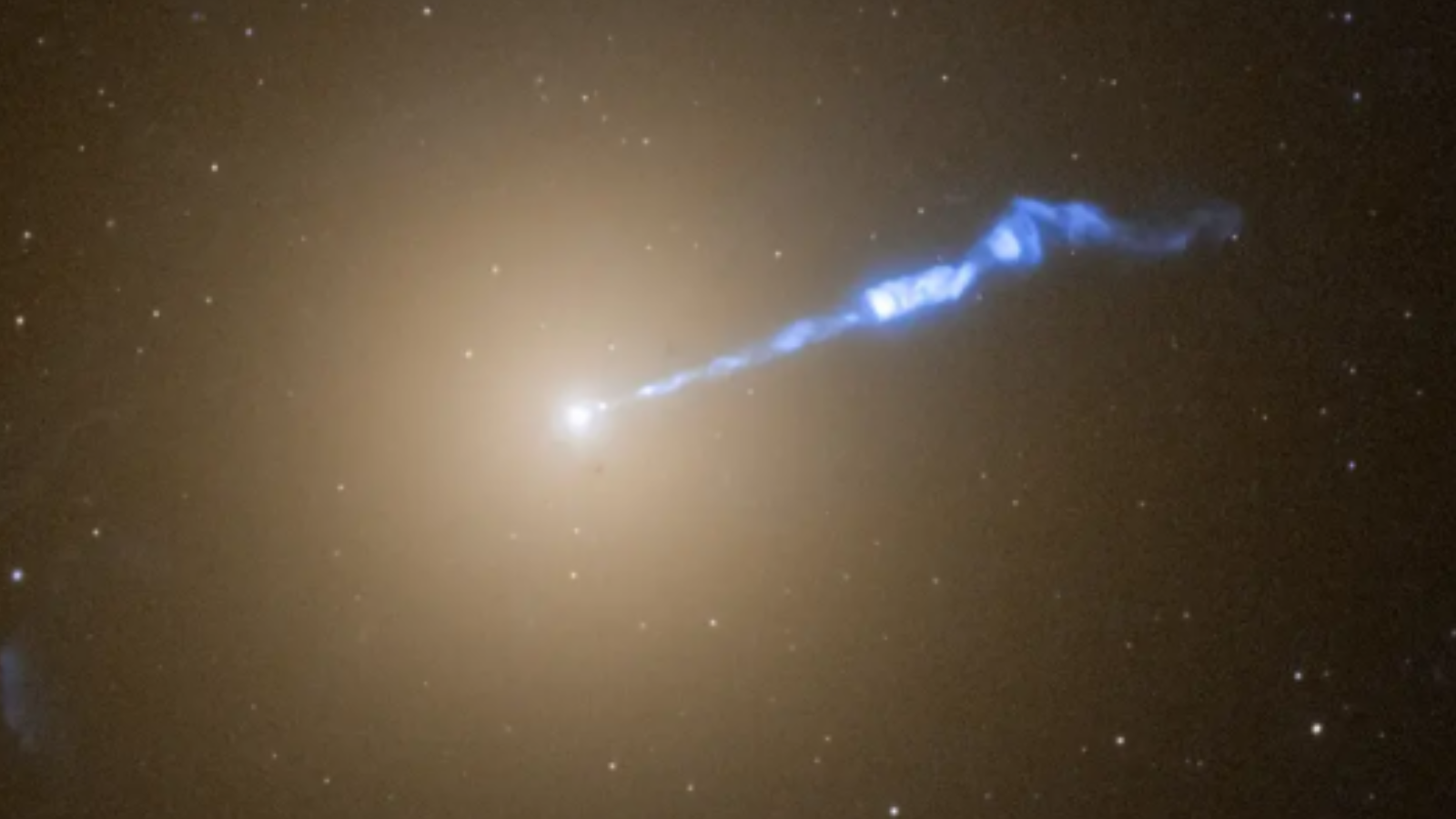
The Space Destination Debate Gets Us Nowhere ... Literally (Op-Ed)

Hannah Rae Kerner is chair of Students for the Exploration and Development of Space (SEDS) and a Ph.D. student at Arizona State University studying exploration systems design (systems engineering and robotics). She contributed this article to Space.com's Expert Voices: Op-Ed & Insights.
In September 2014, I was asked to represent the voice of the next generation of space leaders on a panel, "Sustaining Human Space Exploration," as the chair of Students for the Exploration and Development of Space (SEDS). Before the event, I met with a friend — an associate at a D.C. space policy consultancy — to go over some talking points. As a proponent of lunar settlement, I inevitably brought up the moon. Immediately, my friend interrupted: "Don't mention the moon. You don't want to get into a destination debate and detract from your point."
That's when I learned about the destination debate phenomenon: The generally accepted rule in D.C. that one should talk about "pathways" rather than particular destinations, because touching on any specific destination inevitably results in arguments among scientists and senators alike over where humans should be going — which is absurd, because humans have not gone anywhere beyond low-Earth orbit since the Apollo program ended in 1972.
Grounded on Earth
At the same forum, Virgin Galactic's Will Pomerantz, who serves as chair of the Board of Advisors for SEDS, summed up my frustration: "We need to stop arguing about which direction we should go and with what priority we should visit these places, and just go out there and do the damn thing. This question of moon first or Mars first has become so profoundly uninteresting to me because I realized we've been having the exact same argument for 40 years, and nothing about it has changed." [NASA Unveils New Astronaut Class for Deep-Space Exploration ]
In my role as chair of the world's largest student-run space organization, I interact with young people from across the country who are passionate about space. Whether they plan on working in the space industry as professionals or they simply plan on supporting the industry with their enthusiasm and their tax dollars, they are united by a love of space exploration, a vision for a space-faring humanity and a hope that NASA will once again accomplish something that can be called the pinnacle of human achievement.
Throughout my experiences, I've noticed something key: Young people don't seem to care very much where we go next. They care that we are going somewhere and that we don't give up before we get there.
Youth and space
In 2012, Mashable reported that nearly four million people watched Curiosity land on Mars, 3.2 million of whom were online Ustream viewers and the majority, according to demographics of cable TV viewers versus Internet viewers, were likely under 25.
Breaking space news, the latest updates on rocket launches, skywatching events and more!
People all over the world tuned in online to watch the Rosetta/Philae landing. Friends who are not otherwise "space people" were informing me of the schedule of the multiday event and organizing landing parties.
Thousands of people, the majority of whom were under 36 years old, applied for Mars One (a number that would surely have increased explosively if applicants under 18 had been eligible).
Andy Weir's "The Martian" reached the New York Times' Best Sellers list twice, and was optioned for a movie by 20th Century Fox less than a year and a half after it was published. "Interstellar" grossed more than $449 million in theaters worldwide, and "Gravity" grossed more than $716 million.
What does that suggest? For one, the public goes absolutely nuts over space; it is inherently cool. But it also suggests that people, and especially young people, are destination-agnostic. They are thrilled by any space mission with a compelling story, and what's more compelling than human exploration? I can't imagine that the public's excitement would be less for choosing either to send humans to the moon, Mars or an asteroid.
Burnout?
Unlike experienced but aging decision makers in Congress and NASA, young people don't have a "been there, done that" attitude toward the moon because they literally have no memory of the event. There are so many young, brilliant people who are in love with space but think the barrier to entry is too high and the mission lifetimes too long for them to make any headway in human exploration in their time on Earth; some don't even see their generation having a role in it, at all.
It's not that millennials don't have the tenacity or work ethic to take on hard or lengthy projects. Having worked with millennials on myriad projects, and being one myself, I can attest that young people are willing to work themselves into the ground (too hard in many cases) to realize their goals. They have learned that their success in life is a function of their input, and that simply showing up will get them nowhere. The problem is they are turned off by the opportunity cost of going to work in an industry that has struggled with indecision for their entire lives, when they could instead go work for a startup or tech company and make an impact on the world immediately.
When asked why he wasn't interested in space exploration, Nate Sauder, a 21-year-old deep-learning scientist at Enlitic, told me he thought it was certainly very cool, but that "NASA's human exploration really feels like some sort of scientific baby boomer. Born of post-war enthusiasm and cold-war competition, Kennedy's speech marked its bar mitzvah and 1969's lunar landing the triumphant fulfillment of potential. The 80s-90s were prototypical American middle age: stable success, a life tragedy and some bickering over finances. Finally, in 2011, the world celebrated its retirement and now we've all laid it to rest."
In following the incessant debate about potential NASA missions, I often hear NASA leaders, industry advocates and Congressional champions alike point to the value of these missions to inspire the next generation. Yet the more their arguments cause inaction, the more cynicism they generate in those they seek to inspire.
The problem is not that young people don't understand the importance to humanity or relevance to individuals of a certain NASA mission. We understand perfectly fine. But we also see that these missions are doomed to die a political death when leadership at NASA or elsewhere in government has a change of heart.
As an intern at NASA in the summer of 2013, I watched a presentation extolling the plans and potential of the Asteroid Retrieval Mission (ARM) the same morning I read about the House cutting ARM from the budget. This indecision is driving away the young, inventive minds NASA needs to realize any of these missions.
I'd like to deliver a clear message on behalf of the next generation you seek to inspire: The only bad outcome in this debate over destinations is the decision to go nowhere. Let's just go out there and do the damn thing.
Follow all of the Expert Voices issues and debates — and become part of the discussion — on Facebook, Twitter and Google+. The views expressed are those of the author and do not necessarily reflect the views of the publisher. This version of the article was originally published on Space.com.

